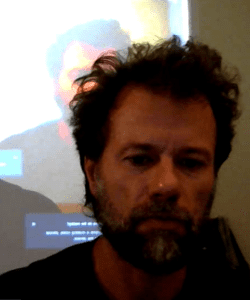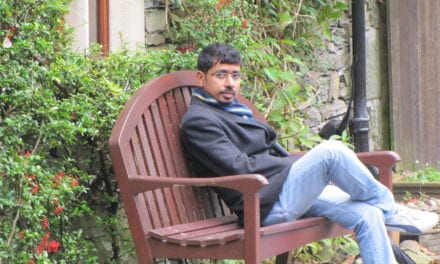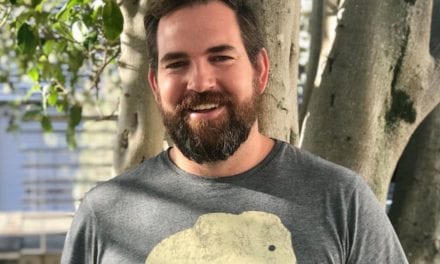
EN Henrique Parra & Ricardo Teixeira, some perspectives on how Brazil is facing the pandemic: From the health care system to smart technology (Episode in Portugese with English transcription)
[ Notice: This episode is in Portuguese. As a way of letting the interviewees express themselves fully and also to amplify the access to Brazilians, this session was recorded in the interviewee’s native language. Thus, Andrea Rozenbaum, a Brazilian anthropologist, is also joining us in this episode as a co-host. A transcript of the episode in English can be found in the podcast’s website. ]
EN
In times of so many uncertainties, we talked to a doctor and a sociologist to help us with having a bit more clarity over the moment we are living. On one side, we brought the sanitary doctor Ricardo Teixeira, who is specialized in collective health. With more than 35 years of professional experience, he is a professor at São Paulo University (USP) in the preventive medicine department. He focuses his investigations on health care communication. On the other side, we invited the sociologist Henrique Z.M. Parra, a social sciences professor at Federal University of São Paulo (UNIFESP). There, he coordinates the Laboratory of Technology, Politics and Knowledge (aka Pimentalab). His research focus is on social studies of science and technology, and technopolitics.
We started talking about how different countries are responding to deal with the dissemination of COVID-19. Focusing on Brazil, apart from an overview of the health care system’s reality, in which there are insufficient tests, we also discussed the difficulty for many Brazilians to follow the social isolation measurements.
Although the short-term perspectives are not that optimistic, Henrique proposed an interesting view on alternative uses of technology smartly. Instead of focusing on approaches that reinforce individual responsibility, he suggests an amplification to look at uses of technology that promotes the collective engagement if face of the pandemic.
We discussed the State’s role and performance in the Brazilian context. They both shared their views on the significance of civil initiatives that have been emerging as responses to circumvent the State’s absence in specific moments. They also pointed out how the public health system (SUS) has been gaining relevance. For instance, they mentioned SUS’ strategic strengths and the front lines workers’ recognition by society. All of this, considering that the system is under-financed by the State, which becomes more evident.
We also talked about cultural and structural issues. From the disobedience at various levels to the way the tax system contributes to deepening social inequalities, even when it comes to the health system.
This is just the first part of our conversation, which continues into the next episode.
Listen & Subscribe to the Podcast here:
PT
Henrique Parra & Ricardo Teixeira, algumas perspectivas sobre como o Brasil está lidando com a pandemia: Do sistema de saúde à tecnologia inteligente
Em tempos de tantas dúvidas e incertezas, conversamos com um médico e um sociólogo para nos ajudar a ter um pouco mais clareza sobre o momento que estamos vivendo. De um lado, trouxemos o médico sanitarista Ricardo Teixeira, especializado em saúde coletiva. Com mais de 35 anos atuação, é professor na faculdade de medicina da USP, no departamento de medicina preventiva, onde desenvolve pesquisas com enfoque em comunicação em saúde. Do outro, o sociólogo Henrique Parra, professor no departamento de ciências sociais na UNIFESP. Lá ele coordena o Laboratório de Tecnologia, Política e Conhecimento (Pimentalab). Suas pesquisas são focadas nas áreas de estudos sociais da ciência e tecnologia, e tecnopolítica.
Iniciamos a conversa falando sobre as respostas que diferentes países têm dado para conter a disseminação do COVID-19, dando atenção ao que está acontecendo mais especificamente no Brasil. Além de um panorama sobre a realidade no sistema de saúde, onde não há uma quantidade de testes suficientes para controle, abordamos também a realidade de grande parte dos brasileiros, para os quais seguir as recomendações de isolamento social é muito difícil.
Apesar de perspectivas não tão otimistas pensando em soluções à curto prazo, o Henrique trouxe uma visão interessante de como podemos utilizar a tecnologia de forma alternativa, com uma perspectiva que promova o engajamento coletivo no enfrentamento da pandemia, ao invés de abordagens orientadas para a individualização da responsabilidade.
Discutimos o papel e a atuação do Estado no contexto brasileiro. Ambos comentaram sobre a importância das iniciativas civis que vêm surgindo como respostas para contornar a ausência do Estado em certos momentos. E também sobre a relevância que o SUS vem ganhando, suas forças estratégicas, além do reconhecimento dos trabalhadores na linha de frente. Tudo isso, considerando o sub-financiamento do sistema por parte do Estado, que se evidencia.
Falamos de questões culturais e estruturais, como a desobediência em diversos níveis, e o sistema tributário que contribui aprofunda as desigualdades sociais também em relação ao sistema de saúde.
Essa é apenas a primeira parte da conversa, que continua no próximo episódio.
Mentioned in Podcast:
Pimentalab, projeto do Henrique Parra (Henrique Parra’s project), https://pimentalab.milharal.org/
Entrevista com Ricardo Teixeira do Observatório de Análise Política em Saúde (Interview with Ricardo Teixeira), http://www.analisepoliticaemsaude.org/oaps/documentos/noticias/entrevista-do-mes-de-abril-ricardo-teixeira/
Série Lavits_Covid19 sobre tecnologias e vigilância durante a pandemia da LAVITS – Rede Latino-americana de estudos sobre vigilância, tecnologia e sociedade (Lavits series Covid19), No episódio #4 [ http://lavits.org/lavits_covid19_4-uma-intrusao-viral-convoca-novos-saberes-e-novos-modos-de-saber/?lang=pt ] Henrique Parra e Alana Moraes são entrevistados sobre a experiência do Laboratório Zona de Contágio: https://www.tramadora.net/zonadecontagio/










